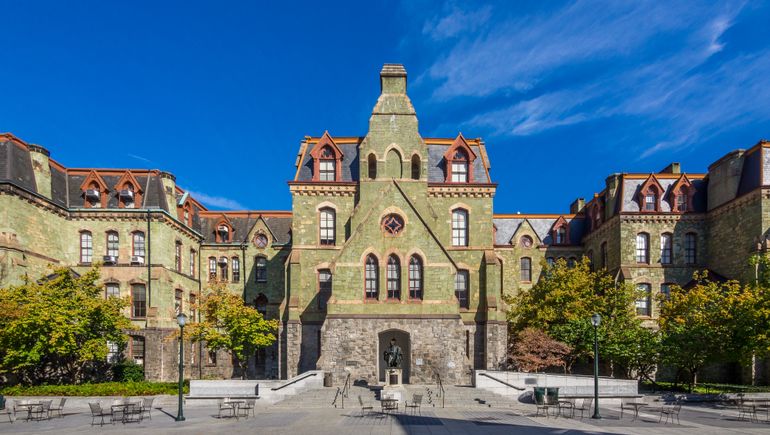Dive Brief:
- The U.S. Department of Education is investigating whether the University of Pennsylvania’s legacy admissions policies constitute racial discrimination under federal law.
- Last month, a complaint was filed against the university’s admissions practices that give preference to alumni relatives, according to the Penn’s student press, The Daily Pennsylvanian, which first reported the investigation. An Education Department spokesperson confirmed Monday the university was under investigation but declined further comment.
- Penn spokesperson Megan Gallagher said in an email Monday that the university is “aware of the complaint and will fully cooperate with the investigation.”
Dive Insight:
Legacy practices, an enrollment cornerstone for some selective colleges, have taken heat from the public and policymakers alike since the U.S. Supreme Court in June ruled colleges’ race-conscious admissions policies unconstitutional.
That decision stoked fear, especially among college leaders, that historically marginalized populations would be further boxed out of postsecondary education. In contrast, legacy policies have been shown to favor the White and wealthy.
The Biden administration has indicated it would support weakening legacy preferences.
In 2022, during oral arguments in the Supreme Court cases against race-conscious admissions, Solicitor General Elizabeth Prelogar said the Biden administration would be amenable to the justices banning legacy preferences. President Joe Biden and Education Secretary Miguel Cardona have also made public statements criticizing legacy policies.
In July, the Education Department began investigating if Harvard University’s legacy policies discriminate against applicants based on race.
The probes at both Harvard and Penn center on whether the universities’ legacy preferences violate Title VI of the Civil Rights Act, which prohibits race discrimination in federally funded institutions.
Federal and state lawmakers have also moved against legacy status.
Congressional representatives across the political spectrum have introduced bills to end legacy policies. One, a bipartisan Senate bill introduced in November, would ban colleges from giving preference to applicants with any donor or alumni connections.
“America is a land of opportunity, not a land of aristocracy,” Sen. Todd Young, an Indiana Republican and one of the bill’s sponsors, said in a statement at the time. “Legacy admissions restrict opportunities for many bright and talented young Americans and provide unmerited advantage to the most connected individuals in our society.”
Some state lawmakers, including those in New York and Virginia, have introduced bills to banish legacy admissions. And Colorado became the first state to ban legacy policies for its public colleges in 2021.
Tracking how many colleges employ legacy admissions can be challenging. Colleges self-report to the Education Department and public-facing databases whether they use legacy preferences. But some have erred in this reporting, saying they have legacy policies when they in fact don’t, or vice versa.
Last month, the Education Department said more than 550 institutions consider legacy status. But this figure has been called into question by a recent Education Reform Now report, which said it includes open-enrollment colleges that would not weigh such admissions factors.
